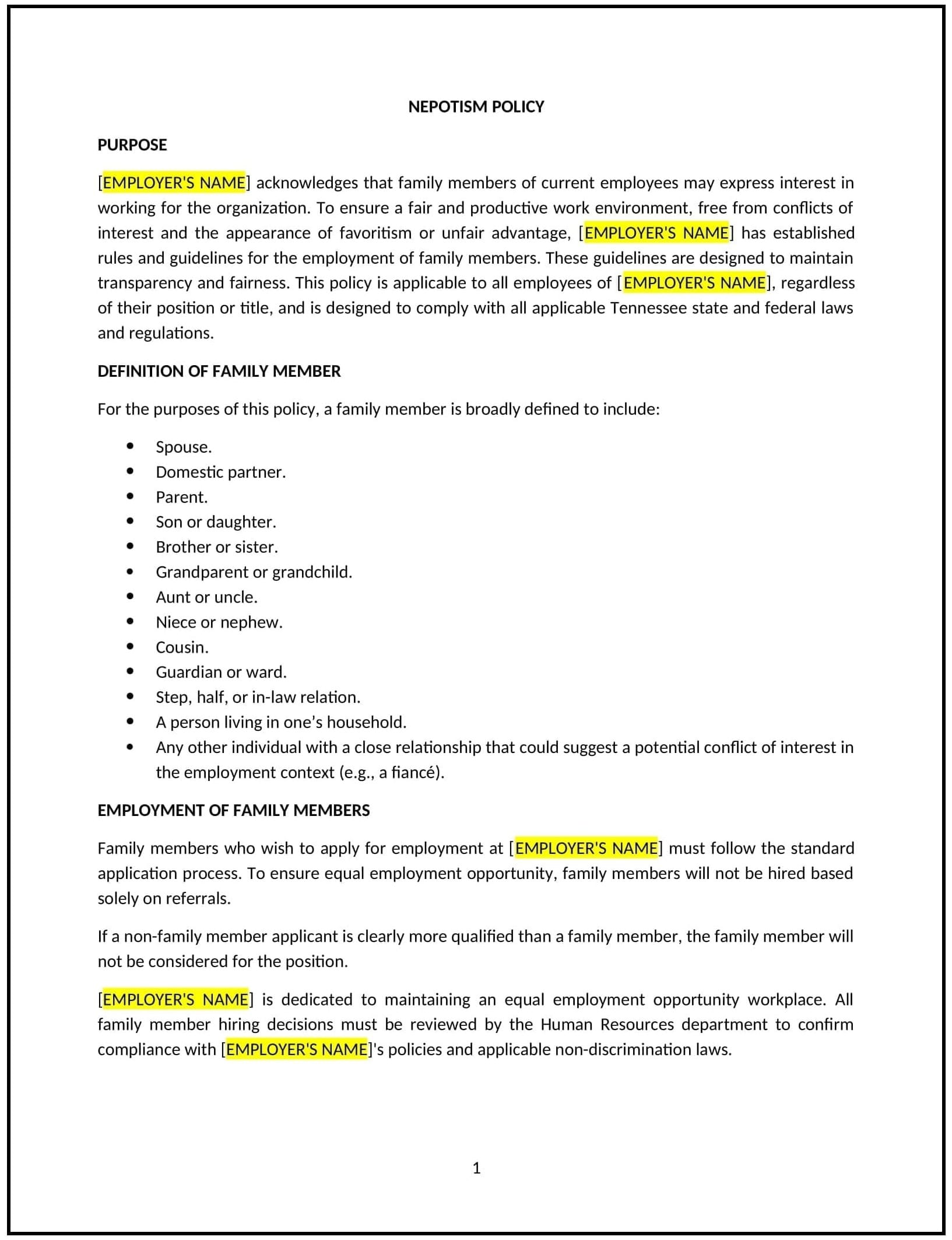Got contracts to review? While you're here for policies, let Cobrief make contract review effortless—start your free review now.

Customize this template for free
Nepotism policy (Tennessee)
This nepotism policy is designed to help Tennessee businesses establish guidelines for hiring and managing employees who are related to each other. It outlines procedures for preventing favoritism, conflicts of interest, and disruptions in the workplace.
By adopting this policy, businesses can promote fairness, maintain professionalism, and ensure a transparent work environment.
How to use this nepotism policy (Tennessee)
- Define prohibited relationships: Specify which relationships are restricted, such as spouses, parents, children, or siblings.
- Set hiring guidelines: Outline steps for ensuring fair hiring practices, such as excluding relatives from the hiring process for their family members.
- Address reporting structures: Specify that relatives cannot supervise or report to each other directly.
- Train managers: Educate supervisors on enforcing the policy and addressing potential conflicts.
- Review and update: Assess the policy annually to ensure it aligns with evolving business needs and workplace dynamics.
Benefits of using this nepotism policy (Tennessee)
This policy offers several advantages for Tennessee businesses:
- Promotes fairness: Ensures all employees are treated equally, regardless of personal relationships.
- Maintains professionalism: Reduces the risk of favoritism or perceived bias in the workplace.
- Enhances transparency: Provides clear guidelines for hiring and managing related employees.
- Reduces conflicts: Minimizes the potential for conflicts of interest or disruptions in team dynamics.
- Aligns with best practices: Supports a structured approach to managing workplace relationships.
Tips for using this nepotism policy (Tennessee)
- Communicate the policy: Share the policy with employees and include it in the employee handbook.
- Provide training: Educate managers on enforcing the policy and addressing potential conflicts.
- Monitor compliance: Regularly review hiring practices and reporting structures to ensure adherence.
- Address issues promptly: Take corrective action if nepotism or favoritism is reported or observed.
- Update regularly: Assess the policy annually to ensure it aligns with evolving business needs.